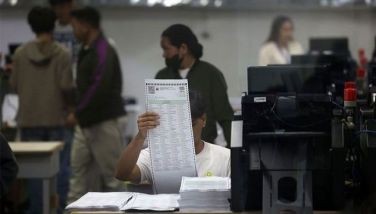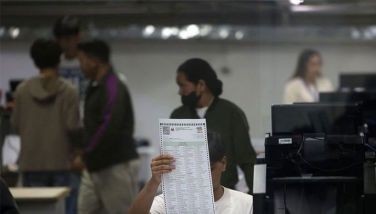GMA signs Expanded Breastfeeding Act

MANILA, Philippines - Government offices and private establishments may soon have “lactation stations” where mothers can breastfeed their babies or store their breast milk in refrigerated containers.
This is mandated under Republic Act 10028 or the “Expanded Breastfeeding Promotion Act of 2009,” signed by President Arroyo last March 16, which provides tax incentives to all government agencies and private establishments that provide lactation stations for working mothers.
Without the traditional ceremonies at Malacañang, Mrs. Arroyo signed the Congress-approved amendments of RA 7600, which promotes breastfeeding.
A copy of the law was furnished to The STAR by Sen. Pia Cayetano, its principal author. The enrolled copy of the consolidated bill was sent to the Palace last Feb.16.
Cayetano, who is up for re-election under the Nacionalista Party (NP), hailed the President’s approval of the new law.
“Indeed it takes an entire community to raise a child. What we are aiming for is an entire enlightened community, with high awareness on the advantages of breast milk, in order to raise entire generations of breast-fed, healthy children and empowered breastfeeding mothers,” the senator pointed out.
“The passage of this law is perfect, March being women’s month. Thus, we can say that this law is the 14th Congress’ gift to all Filipino mothers on women’s month,” Senator Cayetano said.
Under the new law, all private enterprises as well as government agencies, including government-owned and controlled corporations, are required to put up lactation stations.
RA 10028 mandates all health and non-health facilities, establishments or institutions to establish lactation stations that are adequately provided with the necessary equipment such as lavatory for hand washing, refrigeration or appropriate cooling facilities for storing breast milk, electrical outlets for breast pumps, a small table; comfortable seats and other items in accordance with standards defined by the Department of Health (DOH).
The expenses incurred by a private health and non-health facility, establishment or institution in complying with the new law shall be deductible expenses for income tax purposes up to twice the actual amount incurred. These facilities, establishments or institutions shall secure first a “Working Mother- Baby-Friendly Certificate” from the DOH to be filed with the Bureau of Internal Revenue (BIR) before they can avail of the tax incentive.
Government agencies complying with the new law shall receive an additional appropriation or budget equivalent to the savings they may derive as a result of complying with the law. The additional appropriation shall be included in their budget for the next fiscal year.
The same law, however, also provides for “exemptions” from compliance “where the establishment of lactation stations is not feasible or necessary due to peculiar circumstances of the workplace or public place taking into consideration, among others, the number of women employees, physical size of the establishment and the average number of women who visit.”
Private enterprises may apply to the Secretary of the Department of Labor and Employment (DOLE) for exemption from this law while government agencies can apply to the chairman of the Civil Service Commission. The exemption is valid for a period of two years.
“All health and non-health facilities, establishments or institutions which are exempted in complying with this law but nevertheless opt to comply are entitled to the benefits under the law provided they give their employees the privileges of using the same.”
RA 10028 also mandates “lactation periods” for nursing employees who are granted break intervals in addition to the regular time-off for meals to “express milk” or the act of extracting human milk from the breast by hand or by pump. Provided such period shall not be less than a total of 40 minutes for every eight-hour working period.
Health institutions are likewise encouraged to set up milk banks for storage of breast milk donated by mothers and which have undergone pasteurization. The stored breast milk will be given to children in the neo-natal intensive care unit whose own mothers are seriously ill.
The new law encourages the promotion of breastfeeding by integrating in curriculum in relevant subjects in schools under the Department of Education, Commission on Higher Education and the Technical Education and Skills Development Authority.
To further promote the importance and raise awareness of breastfeeding, the new law likewise sets every August of each year as Breastfeeding Awareness Month throughout the Philippines.
- Latest
- Trending




























